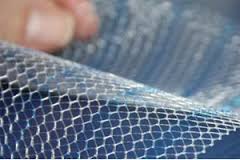
Transvaginal mesh is a medical device that is permanently implanted in women to treat pelvic organ prolapse (POP) and stress urinary incontinence (SUI). The manufacturers marketed these plastic devices as a breakthrough in the treatment of these conditions. However, reports of severe injuries began to increase as more of these devices were implanted in women.
By July 2011, the U.S. Food and Drug Administration (FDA) had received 4,000 complaints of injury, death, and serious malfunction of the transvaginal mesh implants. The FDA reported that the most frequent complications included mesh erosion (also called exposure or extrusion), pain (including painful sexual intercourse known as dyspareunia), infection, urinary problems, bleeding, and organ perforation. The FDA noted that mesh related complications are not rare and can be life-altering for some women. As a result, the FDA has stated that transvaginal mesh implants do not necessarily improve patients’ quality of life and may expose them to increased risks compared to other methods of treating POP and SUI.
As of 2015, approximately 70,000 lawsuits had been filed against the major manufacturers of transvaginal mesh implants. These manufacturers include:
- American
- American Medical Systems
- Bard
- Boston Scientific
- Coloplast
- Cook
- Ethicon (a subsidiary of Johnson & Johnson)
Although each manufacturer takes a slightly different approach to the manufacturing and marketing of its polypropylene mesh implants, each type of implant has been implicated in cases of serious injuries to patients.
Complications from Vaginal Mesh Injuries
The most serious complications arising from the use of vaginal mesh implants are tissue erosion and organ perforation.
Erosion occurs when the mesh wears through the soft tissues in the pelvis. The mesh may also “extrude” or “protrude” so that it can be seen externally or felt by the woman or her partner. In other cases, erosion into the urinary tract can lead to frequent infections. Any tissue erosion can cause serious and debilitating pain, increase the risk of infection, and be very difficult or impossible to treat with additional surgeries.
As mesh erodes through internal tissues, it can puncture or perforate organs in the pelvic area, such as the bladder, urethra, bowel, or rectum. Organ perforation nearly always requires surgery in order to correct and may cause severe pain and serious infections.
We represent hundreds of women who have suffered serious injuries from these mesh devices. If you or a loved one has suffered an injury due to a transvaginal mesh implant, Zonies Law may be able to help. Please contact us for further information.


